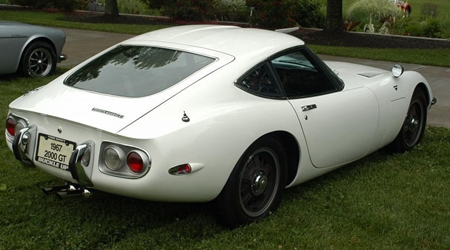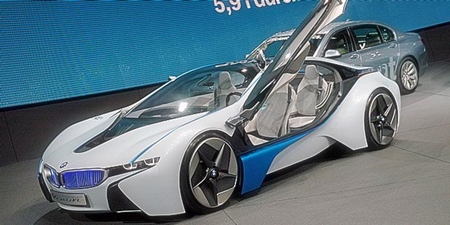In one fell swoop of the pen, Toyota and BMW just ended their tenure as independent automakers in the world marketplace with the news of the sports car they will share.
Toyota and BMW have agreed to jointly develop a sportscar as part of a planned expansion of engineering ties that will also include co-operation on fuel cells, light-weight vehicle design and electric powertrains.
 Toyota 2000GT
Toyota 2000GT
An MOU (memorandum of understanding) for long-term strategic collaboration was signed in Munich last month by Toyota Motor Corporation president Akio Toyoda and BMW Group chairman Norbert Reithofer.
This is a flow-on from an existing agreement, under which BMW will supply diesel engines to Toyota for its European cars from 2014 in return for access to Toyota electric powertrain technology.
The latest MOU is seen as similar to agreements made between Mercedes-Benz and Renault-Nissan, and General Motors and PSA Peugeot-Citroen. When your new car fails, who do you contact for warranty, I wonder?
 BMW i8
BMW i8
According to the PR guff, Akio Toyoda said Toyota and BMW shared a common principle – a mission to make ever-better cars. “We are not coming together to become bigger,” he said. “We are not coming together to form capital ties. We are joining hands because we want to make ever-better cars.” And if you believe that, then you will also realize that the moon truly is made of green cheese.
Mr Toyoda said that, while Toyota was strong in environment-friendly hybrids and fuel cells, BMW’s strength was in developing sports cars. “They know how to make a car perform,” he said. “I get so excited thinking about the cars that will result from this relationship.”
Akio-San conveniently forgets the Toyota Supra, Toyota Celica and even the Toyota 2000GT, and the new, jointly produced with Subaru, Toyota 86, let alone the Lexus LFA.
Toyota and BMW are not the first to decide that co-operation on sports cars is the name of the game, with Fiat recently signing a deal with Mazda to share the next MX-5 to be marketed as an Alfa Romeo.
No details of the proposed jointly produced sports car were given, except to say it would involve the architecture and components. The new car is likely to borrow technologies from both sides, such as lightweight carbon-fiber reinforced polymer (CFRP) panels from BMW’s i3 and i8, and an electrified powertrain from Toyota.
While Toyota has been pressing ahead with hybrid powertrains through the Toyota Prius and Lexus hybrid models, BMW has been developing its own ‘i’ brand of lightweight electric and plug-in hybrid cars such as the i3 city runabout and i8 hybrid sports car (as driven by Tom Cruise in the Mission Impossible movie).
One is left wondering, just what the advantages of all these unions really will be.




